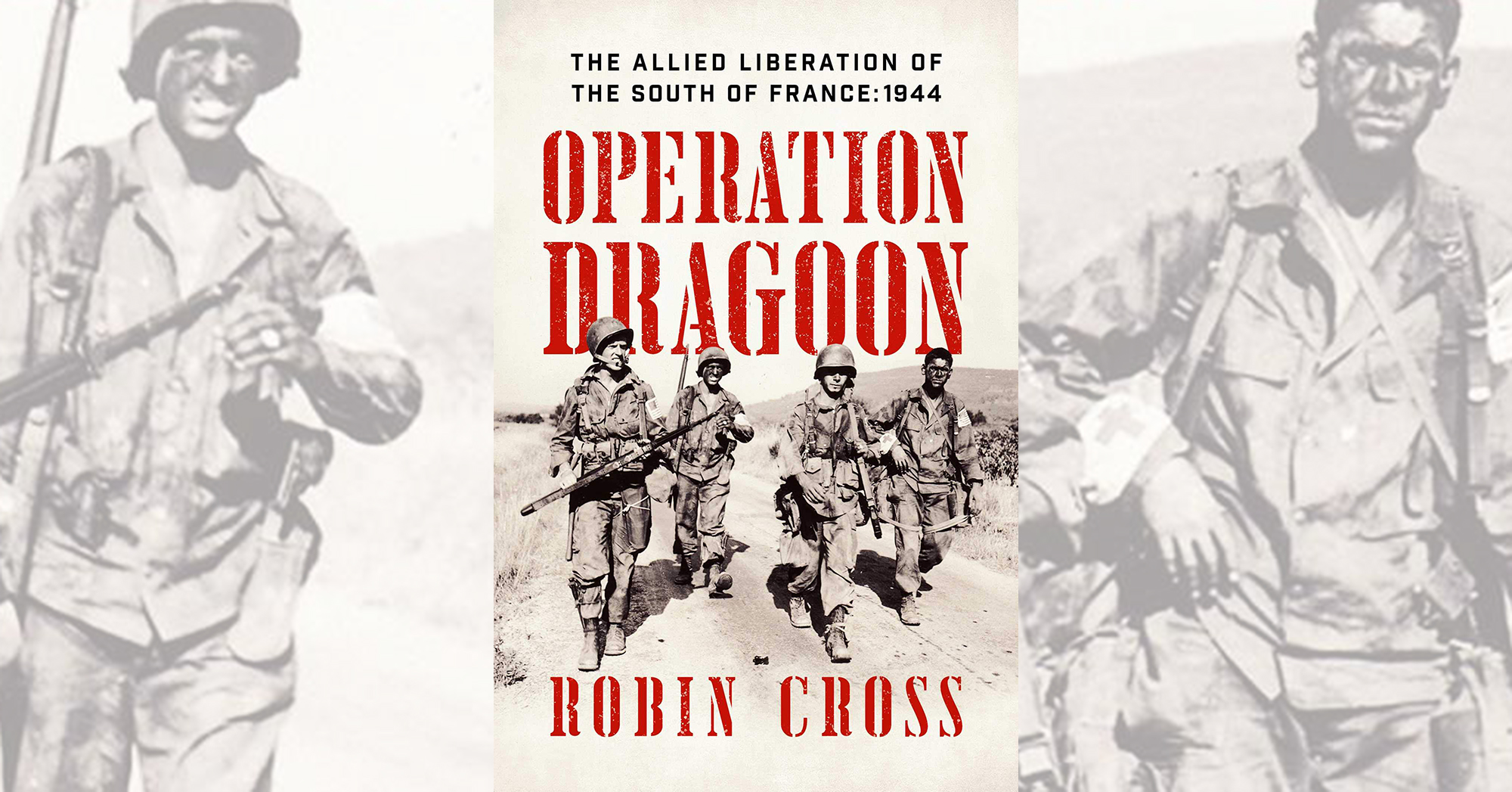Operation Dragoon: The Allied Liberation of the South of France: 1944, by Robin Cross, Pegasus Books, New York, 2019, $27.95
While victory might have a hundred fathers, it is sometimes orphaned if won too easily. Such was the case with Operation Dragoon, a strategic success rarely detailed in histories of World War II.
Dragoon stood squarely in the face of more quixotic alternate history visions—for example, Winston Churchill’s preference for landings along the Adriatic. Robin Cross dedicates much of the first third of his book to strategic squabbling about that issue. The American insistence on landing in southern France prevailed, the preparations arranged with an eye to the possible British diversion of materiel. A shortage of suitable craft frustrated hopes of making a landing soon after D-Day, while the difficult landing at Anzio cast a heavy shadow on planning, prompting a high priority on ammunition supply.
Shoring up German defenses in southern France were garrisons referred to by Field Marshal Gerd von Rundstedt as “a menace and a nuisance to [German] operations.” The garrisons largely comprised Eastern Europeans drafted into service. Their commander, Johannes Blaskowitz, was a holdover Reichswehr general, “disgraced” by the Nazis for his opposition to atrocities against civilians during the 1939 invasion of Poland.
The initial landing was an almost entirely American operation, aided by British paratroopers and sabotage operations conducted by the French resistance. Encountering resistance at only one landing beach, the Allies sustained fewer than 500 casualties, most due to mines rather than enemy fire. The overall German defense was weak and lacked cohesion. “No order had been issued as to the course of action to be taken by district commanders in the event of an Allied invasion,” Cross quotes a local commander regarding the campaign.
French divisions landed soon after to seize Toulon and Marseilles, quickly returning the ports to working order. A fuel shortage prevented Allied units from encircling the German army in France, but the operation forced even Adolf Hitler to consent to rapid withdrawal. Without the success of Operation Dragoon, the war east of the Rhine may well have continued at length.
—Anthony Paletta





